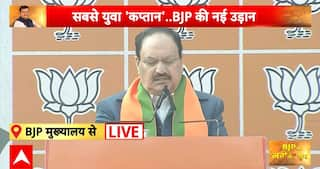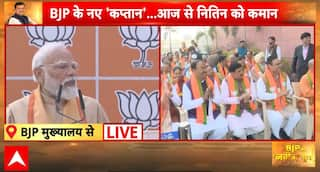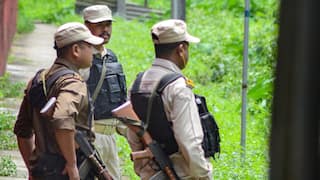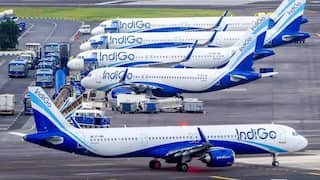Türkiye Earthquake: Why India's Operation Dost Could Prove To Be A Diplomatic Game-Changer
India has already laid a strong foundation by directly engaging with common Turkish people, extending immense help to thousands of earthquake victims.

India responded to the devastating earthquake that struck Türkiye on February 6 with great alacrity. The Indian Air Force's gigantic C-17 Globemaster, which landed in disaster-stricken country within hours with personnel and tonnes of relief material, was among the first few national relief and rescue teams to reach the affected areas the same day. Not bothering about Turkish leader Recep Tayyip Erdogan’s jaundiced view of India and his stated stand on Kashmir, the Indian government ordered the despatch of a relief team, which also comprised a dedicated team of doctors and a field hospital, without delay.
The doctors and the relief-rescue team earned laurels for India from the local earthquake-stricken population. The Ambassador of Türkiye to India, Firat Sunel, described India as a “Friend in need is Friend indeed”.
This is not the first time that India has responded to natural calamities outside its borders. Carrying out Humanitarian and Disaster Relief (HADR) abroad — whether it's neighbouring countries or those in South East Asia or even Africa — has now become part of India's foreign policy.
In the beginning of the milennium, India had demonstrated its soft power during the 2004 tsunami, which created a new image of the country in the eyes of the international community, especially among the major powers. It is said it was India’s joining hands with the US, Japan and Australia for relief and rescue that ultimately resulted in the four-nation alliance called QUAD a decade and a half later. This was dubbed as a great diplomatic spinoff from the tsunami relief effort.
Now, can India expect a similar positive turn in the bilateral relations with Türkiye? Can this prove to be a diplomatic game-changer for India and Türkiye?
The official earthquake donation account of the Turkish Embassy in New Delhi. Would very appreciate if you could share the account number.
— Fırat Sunel फिरात सुनेल فرات صونال (@firatsunel) February 11, 2023
My special request goes to Indian Media.
Thank you all.
🇹🇷🇮🇳#Turkiye #India#turkiyeearthquake#earthquaketurkey#VasudhaivaKutumbakam https://t.co/Aiax0WxrxK
ALSO READ | Why Self-Reliance In Defence Is A Strategic Imperative For India Now
Erdogan Leadership Faces A Huge Challenge At Home
Though over 60 nations sent relief material and aid to Türkiye, India’s effort was remarkable and caught attention. In contrast, Türkiye’s "close friend" Pakistan responded initially with the proposal of a prime ministerial visit, which was first rebuffed, and was allowed only after Pakistan had faced diplomatic humiliation. Later, the Turkish authorities reportedly found that the aid Pakistan sent was in fact the repackaged relief material it had received from Türkiye after last year’s devastating floods. Although Türkiye has been a long-time ally of Pakistan in the Islamic world on the Kashmir issue, its recent emphasis on special relations with Pakistan emanates from President Erdogan’s larger ambitions of leading the Islamic community world over.
Erdogan is known to have ambitions to revive the Ottoman caliphate by 2023, when Türkiye will celebrate the 100 years of its Republic. He wants to revive the institution of caliphate as he aims to claim the moral, political, spiritual and religious leadership of the world. Erdogan finds Pakistan to be a subservient partner in this grand agenda, and hence Türkiye’s support to Pakistan on international fora is not likely to diminish in near future. In fact, two years ago, Türkiye had hosted an international conference on Kashmir, during which the revocation of Article 370 by India was criticised, and a resolution was passed for its restoration. Türkiye thus emerged as the most ardent supporter of Pakistan on the Kashmir issue.
In this backdrop, can we expect a review in Ankara on its relations with Pakistan visavis India? Can the warmth created through unprecedented relief and rescue effort result in a bonhomie with India? Can improved bilateral relations with India impact on Erdogan’s greater ambition to lead the Islamic world? Since Erdogan is not likely to emerge as the undisputed leader of the Islamic world, as some of the powerful Gulf countries are not in good terms with him, it is expected that Erdogan will try to court an economically bankrupt nation that is known to support terror outfits. Erdogan would also not like to sacrifice his links with some of the dreaded terrorist organisations, which he expects to support his broad agenda.
But Erdogan’s leadership faces a huge challenge domestically in the aftermath of the devastating earthquake as he loses popularity and invites criticism from people and various political quarters. To maintain his stronghold, he is adopting dictatorial tactics. Erdogan has crushed all opposition and is trying to sustain his influence among the masses by catering to extremist ideas, which the founder of modern Türkiye Kamal Ata Turk had sacrificed a century ago.
Erdogan’s regime cannot be expected to survive for an indefinite term. Under Erdogan’s rule, Türkiye is sliding in a chaotic polity. To prevent further deterioration, the Turkish army, which once ruled Türkiye and again made a failed attempt to dethrone President Erdogan in 2016, may stage a comeback. The Turkish military considers itself to be the guardian of secular polity, and there is a history of overthrowing unpopular governments at times of political chaos and economic crisis.
Turkiye is passing through this critical phase. As Erdogan gets unpopular because of allegations relating to post-earthquake disaster management, it would not be a surprise if a faction of its army revolts against the regime. In this situation, a new civilian government can be expected to revive old warm relations with India. The new Turkish leadership may realise that it is not in the interest of Türkiye to get isolated in the Islamic world and remain clutched with Pakistan.
Indian Aid Diplomacy Has Created A Lot Of Goodwill
India has already laid a strong foundation by directly engaging with common Turkish people, extending immense help to thousands of earthquake victims. It would not be wrong to say that Indian soldiers and doctors have won the hearts and minds of the Turkish people. In fact, the Indian foreign aid policy has always been people-centric. Unlike China, whose foreign policy is based on courting the dictatorial regimes and political leaders, India believed in capacity building programme, which helped the common people to stand on their own feet in various under-developed and developing countries from Asia and Africa to Latin America.
The Indian Army team of medical specialists is on the job 24x7, providing relief to those injured.
— Arindam Bagchi (@MEAIndia) February 9, 2023
🎥 Some glimpses from the Field Hospital in Iskenderun, Hatay. #OperationDost pic.twitter.com/3hrVP2ZeaM
India’s foreign aid policy is often called Indian aid diplomacy, which indeed has created a lot of goodwill for the country. In fact, during the last two decades, India has spent over $24 billion to further its aid diplomacy. Almost a decade ago, the Union Ministry of External Affairs set up a special division called the Development Project Assistance (DPA) division. Last year, India issued $10 billion as line of credit to African countries, which will help develop the economy of these underdeveloped nations.
India thus projects its soft power through liberal grants and foreign aid along with launching HADR operations, as we saw with Operation Dost in Türkiye.
As the fifth largest economy and an aspirant of the permanent membership of United Nations Security Council, India is playing its required role by sending necessary assistance to the needy nations, rich or poor. This was also visible during the Covid-19 pandemic. Inspite of its strained relations with Türkiye, India did not hesitate to send its relief team to help the Turkish people who were in need of urgent aid. The strategic circles in India are looking forward to Operation Dost helping strengthen the friendship between India and Türkiye.
The author is a senior journalist and strategic affairs analyst.
[Disclaimer: The opinions, beliefs, and views expressed by the various authors and forum participants on this website are personal.]
Related Video
India@2047 Summit: Modi Calls for Innovation, Reforms, and National Resolve








































